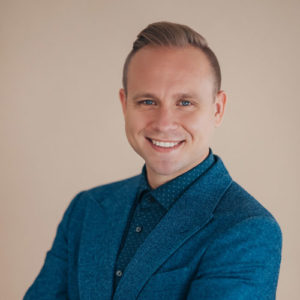Dr. Jeremiah Johnston discusses problems and possibilities for modern Christians with Dr. Bruce Ashford, provost of the Southeastern Baptist Theological Seminary.

Christians must have deep faith roots in order to survive and thrive. One of the ways that facilitates growth and maturity is church involvement. “Church needs to be more than the Sunday morning hour,” Ashford explains. “We’re going to have to find ways to help build strong relationships and hold each other accountable.”
Ironically, the Church has often been strongest when it has been persecuted. While believers enjoy great freedoms in the United States, culture has changed, and hostility toward the message of the Bible is commonplace.
“We need to embrace the moment and strengthen ourselves as Christians – no matter who opposes us,” Ashford says.
As they immerse themselves in Scripture, Christians should not detach from cultural issues. “We are God’s agents for this era in the U.S.,” Ashford says. “We have to let the Bible narrative of the world be the true story, and we need to soak ourselves in that narrative. We are actually an act in the biblical play.”
Each form of entertainment, news, and input is important for believers, since their thinking is influenced by what they consume.
Jesus made a difference in His world, bringing the Father’s will to Earth by healing illness, preaching truth, and ultimately providing for the forgiveness of sins. Likewise, Christians should actively seek to change the world around them, rather than withdrawing from the disappointing parts of society.
“Christianity makes enormous claims. They’re true claims. When I first became a Christian I grappled with the fact that, if Jesus is Lord, how does it affect my life going forward?
Why does He matter for art or science, politics, economics, business, and entrepreneurship?” Ashford asks. “To the best of our ability, we ought to carve out a society where people can live freely and where people can seek to persuade everyone in society toward a better way.”
Bruce Ashford is the provost of Southeastern Baptist Theological Seminary, and a professor of Theology and Culture. He writes about the Church and its mission, politics, family issues, work, leisure, culture, and education.
